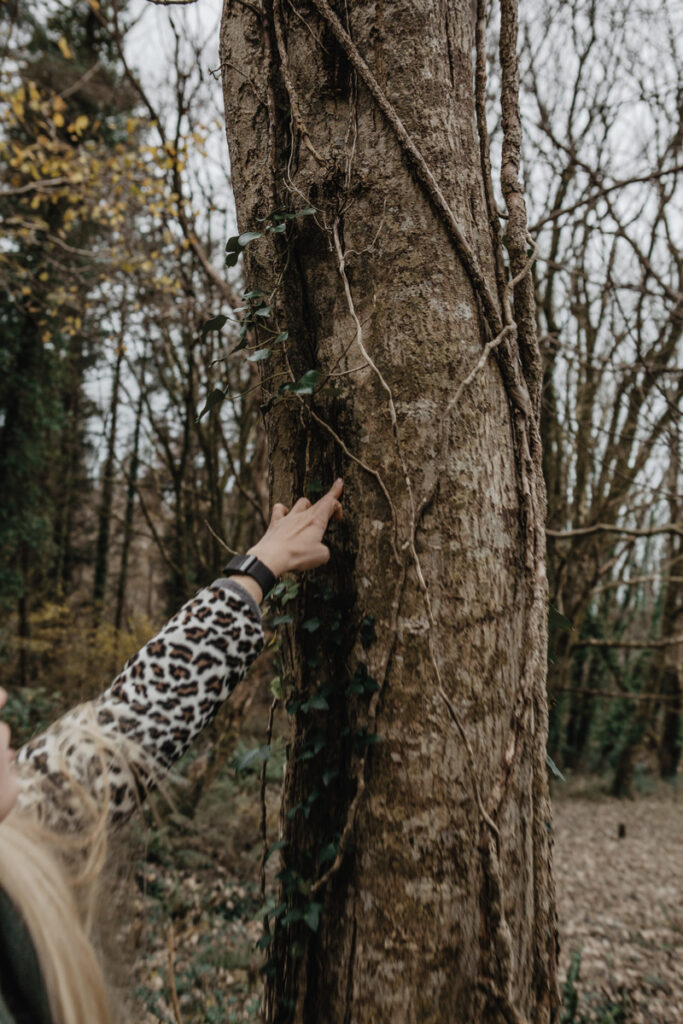The UK’s leading biochar start-up, Earthly Biochar, has announced the launch of its government-funded pioneering project to try and save Britain’s Ash trees. There are 125 million Ash trees in England, Scotland, and Wales, and it is estimated that we could lose up to 80% of these to the disease, ash dieback.
First identified officially in the UK in 2012, ash dieback is a highly destructive disease caused by a fungal pathogen, Hymenoscyphus fraxineus. Originating in Asia before spreading to Europe, the fungus has already destroyed more than 80% of young ash trees in Norway. The fungus penetrates the leaves of ash trees, before growing inside the tree, eventually blocking its water transport systems and causing it to die. Spores of the fungus travel in the wind, meaning the disease spreads easily, making it difficult to limit its impact5.
Since Earthly Biochar’s launch in 2018, it has been on a mission to tackle the issue of excess carbon dioxide in the atmosphere and the resulting climate change emergency through biochar, a stable form of carbon. Whilst also known as an effective soil improver, biochar, a sustainable form of horticultural charcoal, is a trusted method of carbon capture. In the process of creating the biochar, carbon, which otherwise would have been released into the atmosphere as CO2, is captured and stored instead.
When applied to soils, biochar can improve soil health, crop yields, and resource efficiency, and as recently discovered by Earthly Biochar in March 2023, biochar can also have a positive effect on Ash trees, as Earthly’s Founder, Lottie Hawkins (28), explains: ‘In Spring this year, Earthly Biochar visited a farm in Wales that had two woodlands, both with ash trees, and both suffering from ash dieback.
 ‘This farmer makes his own biochar to EU regulatory standards, and in an attempt to save his Ash trees, he top-dressed biochar around the base of the trunks. He did this on half the trees with ash dieback and left the other half alone. One year went by, and the untreated Ash trees had little new growth and looked withered; they looked like they were dying. In contrast, the biochar-treated Ash trees have bushy, deep green new growth and look far healthier than their counterparts.’
‘This farmer makes his own biochar to EU regulatory standards, and in an attempt to save his Ash trees, he top-dressed biochar around the base of the trunks. He did this on half the trees with ash dieback and left the other half alone. One year went by, and the untreated Ash trees had little new growth and looked withered; they looked like they were dying. In contrast, the biochar-treated Ash trees have bushy, deep green new growth and look far healthier than their counterparts.’
The Devon-based biochar supplier is a research-led organisation responsible for conducting the largest commercial trials of biochar in the UK. And now with the ash dieback research mission, Lottie and her team are keen to engage citizen scientists to embark on a research mission with them that could potentially save Britain’s Ash trees from this killer fungus.
‘We’re asking members of the public to come forward, become citizen scientists, and help us help the ash trees. Similar to the Big Garden Birdwatch from the RSPB, we’re hoping people will get involved, document their natural surroundings, and help our natural environment.
‘We’re asking people to go out and find an ash tree, whether it’s on their land, a nearby park, or a forest, and tell us about it using our new ash dieback website. We can then send biochar out for people to apply directly to the tree, or we can send it to the landowner, council, or forestry commission for them to apply.
‘Our mission is to help save the ash trees, not just through the application of biochar but also by reducing the need for mass felling. We know from French research that 20% of ash trees have a genetic advantage allowing them to live successfully with ash dieback. If we can use biochar to improve the health of the other 80%, then we could move towards only felling single trees if they’re a health and safety hazard. With mass felling, the healthy ash trees that have this genetic advantage will also be felled. We need these 20% to repopulate and pass on their genetic advantages, therefore protecting more of our future ash trees.
‘It’s not just the ash trees we’re trying to save; it’s also the species that rely on the ash, which often get forgotten about when we discuss losing these trees. There are 115 Ash-related species made up of insects, microbes, plants, and birds that would risk falling into decline when the Ash trees have gone. This extinction cascade would be devastating to our UK woodlands.’
As well as risking the loss of this majestic tree forever, the cost of losing our ash trees is £15 billion to local authorities and councils as they remove the dead trees safely and expediently. Lottie and the Earthly Biochar team saw the benefit to the environment, the ecosystem, and the economy in finding a resolution to ash dieback.
‘As a PhD student and founder of Earthly Biochar, I realise the significance of this type of research and the scale required to make it robust and meaningful. The early-stage idea of a model based around crowdfunding and sponsorship, to enable citizen science, using landowners, farmers, and volunteers to apply biochar to diseased trees and document the results, was born out of discussions with tree surgeons, academics, landowners, and our team.
‘For every ash tree treated with biochar, we will sequester 125 kg of CO2e. Scaling this up, we could see thousands of litres of biochar production being independently funded, capturing carbon, and potentially building disease resilience in our ash trees. At the moment, we’re set to lose 80% of our ash trees, and if biochar can even save half of these, we must act. We need to be trying everything we can to save our trees and we’re very confident that we can do this, but to do this, we need people’s help.’
To find out more and to sign up to be a citizen scientist helping Earthly Biochar save Britain’s ash trees, visit www.earthlybiochar.com/pages/savetheashtree.








